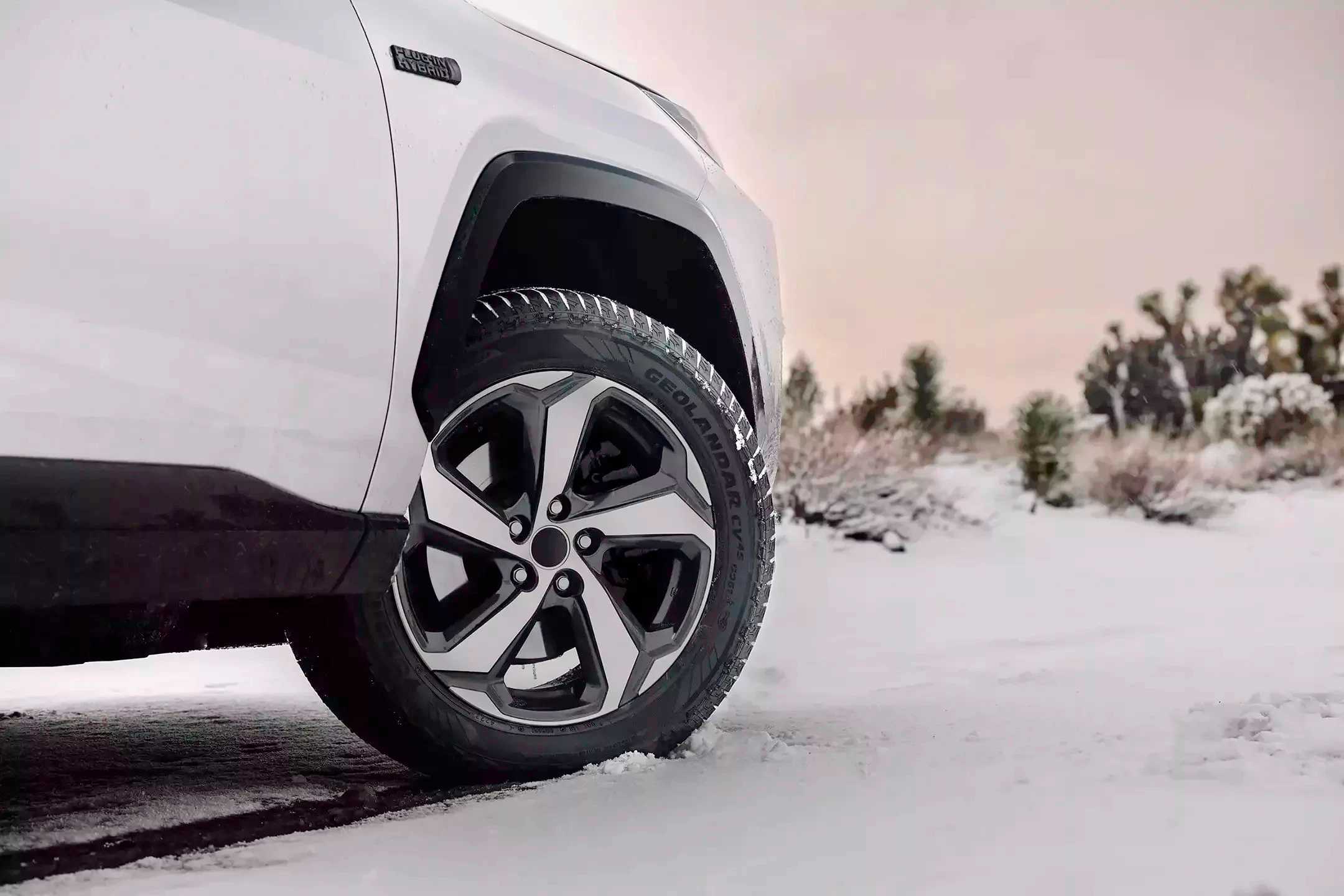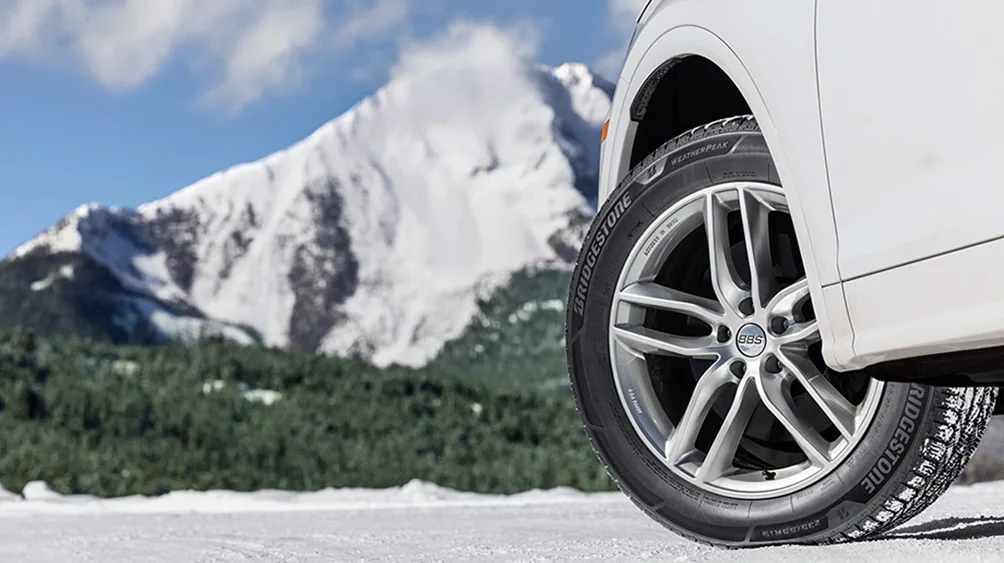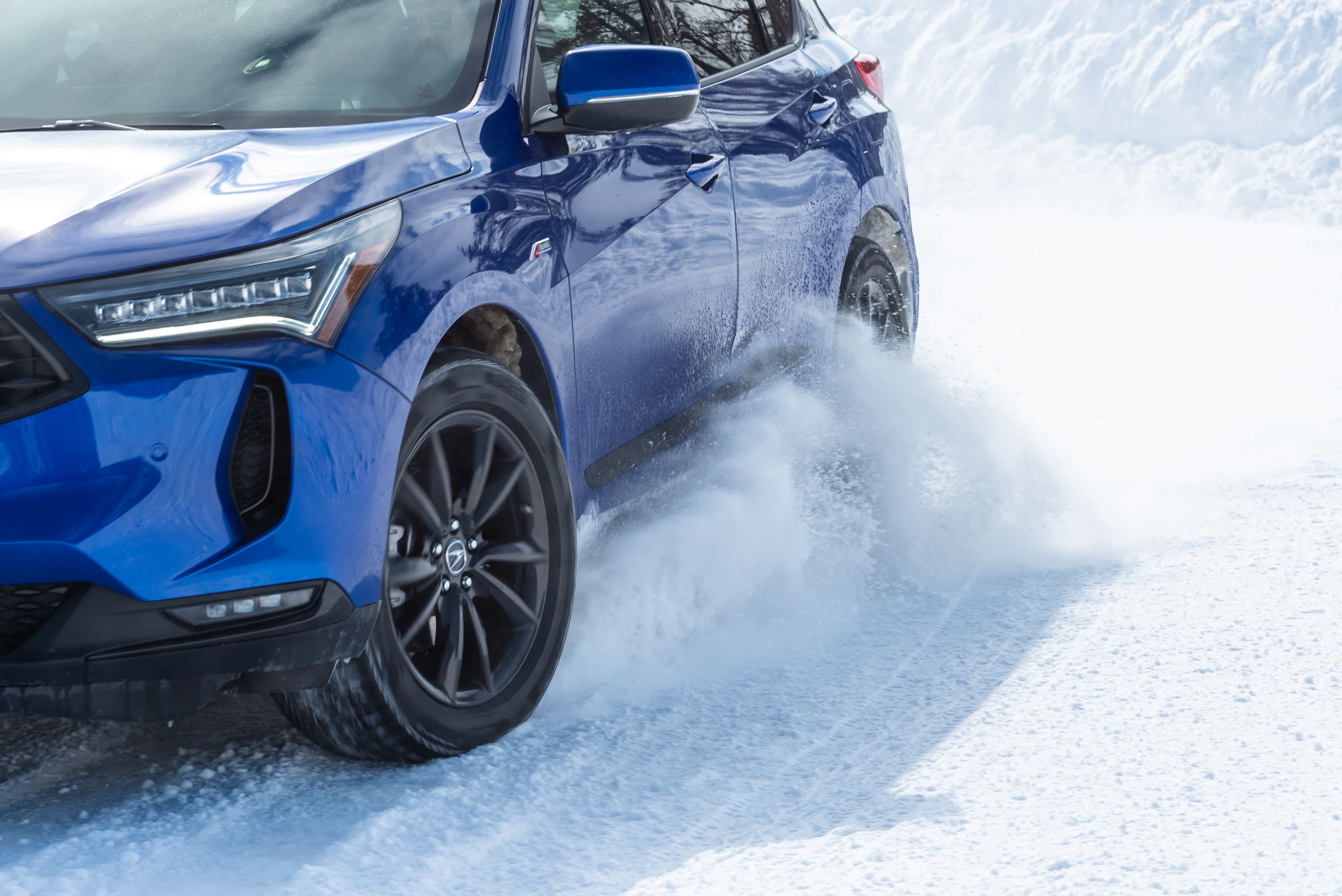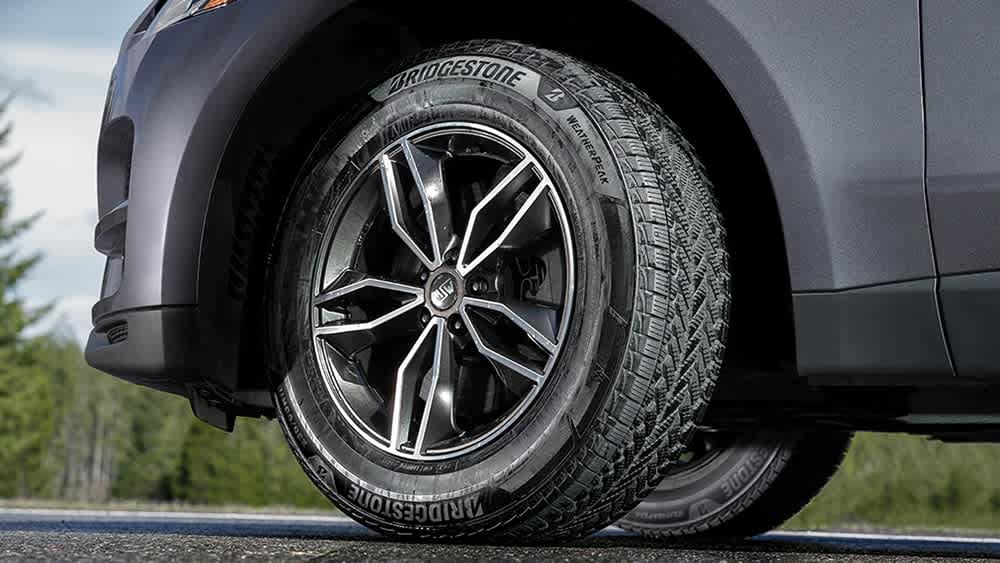Tire News & Information
Free shipping
Best price guarantee
SimpleCrew exclusive savings
0% financing options
Tire replacement coverage
24/7 roadside assistance
Easy returns

Tires are an essential component of any vehicle, providing the necessary traction, handling, and safety for various driving conditions. With advancements in tire technology, drivers now have more options than ever when it comes to selecting the right tires for their needs.
One of the most recent developments in the tire industry is the emergence of all-weather tires, which claim to offer a balance between the performance of all-season tires and the capabilities of dedicated winter tires. As more and more drivers seek a convenient, year-round tire solution, it's essential to understand what sets all-weather tires apart from their all-season counterparts.
In this article, we'll explore the key differences between all-weather and all-season tires, helping you make an informed decision when it comes to choosing the best tires for your vehicle and driving needs.
What are all-weather tires?

All-weather tires are a relatively new category of tires designed to provide reliable performance in a wide range of weather conditions, including light snow and ice. These tires bridge the gap between all-season tires and dedicated winter tires, offering a compromise that allows drivers to use one set of tires year-round.
One of the defining features of all-weather tires is the presence of the three-peak mountain snowflake (3PMSF) symbol on the tire sidewall. This symbol indicates that the tire has been tested and approved for winter use, meeting specific performance criteria in snow and ice conditions. Not all tires marketed as "all-weather" carry this symbol, so it's essential to look for the 3PMSF when shopping for true all-weather tires.
To achieve their versatility, all-weather tires combine elements of both all-season and winter tire designs:
- Tread patterns: All-weather tires feature more aggressive tread patterns compared to all-season tires, with deeper grooves and more biting edges to provide better traction in snow and slush.
- Rubber compounds: The rubber compounds used in all-weather tires are formulated to remain flexible at lower temperatures, ensuring better grip in cold weather conditions.
- Sipes: All-weather tires have a higher density of sipes—small slits in the tread blocks—which help to improve traction on wet, snowy, and icy surfaces.
By incorporating these design elements, all-weather tires aim to offer a viable alternative for drivers who want the convenience of using one set of tires throughout the year without compromising too much on performance in various weather conditions.
How do all-weather tires compare to all-season tires?

All-weather tires stand out from all-season tires by offering enhanced capabilities for winter driving. Their design incorporates specific features for improved performance on icy and snowy roads. This makes them an appealing option for drivers who experience varying winter conditions but prefer not to switch tires seasonally. With advanced tread patterns and unique rubber formulations, all-weather tires maintain stability and control in challenging conditions.
However, this increased capability comes with some considerations. The specialized rubber used in all-weather tires, while excellent for cold weather, may wear more quickly under warmer conditions. As a result, their lifespan might be shorter compared to the more resilient all-season tires, particularly in regions with high temperatures and dry roads.
Despite potential differences in durability, all-weather tires often include a treadwear warranty, providing peace of mind regarding their longevity. This feature is not commonly included with dedicated winter tires. When deciding between all-weather and all-season tires, drivers should assess their specific environmental conditions and driving requirements, ensuring they select the tire that best aligns with their priorities for performance and reliability throughout the year.
Can all-weather tires handle severe winter conditions?
All-weather tires offer a practical solution for regions with moderate winter conditions, capable of handling typical icy roads and light snowfall. These tires, however, may fall short in regions where heavy snow and frigid temperatures dominate the winter months. Dedicated winter tires, with their advanced traction features, remain the top choice for navigating such extreme conditions, providing the necessary grip and safety.
In areas where winters are particularly harsh, the superior design of winter tires becomes apparent. Their specialized tread patterns and flexible rubber compounds ensure optimal performance in snow-packed and icy environments. This distinction makes them indispensable for those who face consistently severe winter weather. For optimal safety and performance, alternating between winter and all-season tires is advisable in these regions.
Conversely, for drivers in places with milder winters, all-weather tires strike a balance between convenience and performance. They adapt well to occasional snow and ice, offering a year-round solution without the need for seasonal changes. This makes them an appealing option for those who desire reliability without the hassle of switching tires twice a year.
What are the benefits of using all-weather tires?

All-weather tires stand out by offering a blend of features that enhance driving simplicity and efficiency. Unlike traditional tires that require seasonal changes, all-weather tires allow drivers to keep the same set on their vehicle throughout the year. This not only saves time but also alleviates the logistical challenges of storing an additional set of tires.
From a financial perspective, all-weather tires provide a savvy solution. Maintaining a single set of tires reduces the overall cost associated with purchasing and managing multiple sets. This approach proves particularly advantageous for those residing in climates that don't demand extreme weather-specific tires. By opting for all-weather tires, drivers can effectively manage their expenses while ensuring their vehicle remains ready for various driving conditions.
A key benefit of all-weather tires lies in the assurance they provide across different weather scenarios. Whether encountering unexpected snow or navigating wet roads, these tires maintain consistent performance. This adaptability fosters confidence in drivers, allowing them to handle sudden weather changes with ease, and contributes to a more relaxed and secure driving experience.
How to identify all-weather tires
Spotting true all-weather tires involves looking for specific indicators that set them apart. A key feature to confirm is whether the tire bears a certification mark for winter suitability. This mark signifies that the tire has been designed to withstand winter conditions, providing reliable grip and control in challenging weather.
When selecting tires, it's important to recognize that the label "all-weather" doesn't always guarantee winter performance. Some tires might claim to be all-weather yet lack the essential winter certification mark, meaning they aren't truly equipped for cold climates. To ensure you're choosing a tire that meets your needs, it's wise to verify its winter performance credentials with a knowledgeable tire expert or a reputable resource.
Beyond certification marks, you may notice the tire's tread design, which typically includes features that enhance traction across different conditions. These design elements contribute to the tire's adaptability and effectiveness throughout the year. By focusing on these aspects, you can select tires that offer confidence and preparedness for any driving scenario.
Are all-weather tires worth the investment?

For drivers living in regions with moderate climates, all-weather tires offer an efficient and seamless solution. Their design caters to year-round use, eliminating the need for frequent tire swaps. This ease of use, combined with consistent performance in various weather conditions, often makes them a valuable choice for those seeking simplicity in their tire maintenance routine. Drivers in these regions benefit from the versatility of all-weather tires, enabling them to confidently manage different driving environments.
Recent advancements in tire technology have enhanced the durability and lifespan of all-weather tires. Many of these models now come with extended treadwear warranties, highlighting their improved performance over time. These warranties provide assurance to consumers, ensuring that their investment will deliver reliable results across different seasons. With ongoing improvements, drivers can expect all-weather tires to offer an optimal balance between longevity and effectiveness.
However, in areas prone to severe winter conditions, dedicated winter tires continue to be the preferred option. Their specialized construction provides superior traction and control in extreme cold and heavy snowfall. For those encountering such rigorous winter challenges, the safety and performance benefits of winter tires may justify the investment over the convenience of all-weather tires. In contrast, for drivers in less demanding climates, all-weather tires present a compelling blend of convenience and reliability.
Choosing the right all-weather tires for your vehicle

Selecting the right all-weather tires requires careful consideration of various factors unique to your driving environment. Start by examining your typical driving patterns—city drivers might prioritize smooth rides and reduced road noise, whereas those traveling rural or challenging routes might need tires with superior durability and grip. It's also essential to assess the local climate; areas with frequent rain or occasional snow may benefit from tires with enhanced water-channeling capabilities.
Additionally, the vehicle type significantly influences tire choice. Larger vehicles like SUVs and trucks might need tires with robust construction and higher load capacities to support their weight and cargo needs. On the other hand, sedans and smaller cars could focus on energy efficiency and agile handling. By matching tire characteristics with your vehicle's demands, you ensure year-round safety and optimal performance.
Consulting with tire specialists or using online comparison tools can aid in making an informed decision. Experts in the field can offer valuable insights based on their extensive understanding of tire advancements and market offerings. Online platforms often provide comparisons tailored to your vehicle's specifications and driving conditions. These resources, complemented by user reviews, help identify tires that offer a balance of durability, quality, and value, ensuring a sound choice for your driving requirements.
As you navigate the world of all-weather tires, remember that the right choice depends on your unique driving needs and environment. We're here to help you find the perfect set of tires that will keep you safe and confident on the road, no matter the season. Explore our selection of all-weather tires and discover the convenience and reliability they offer for your vehicle.
Ready to find the perfect tires?
Search By